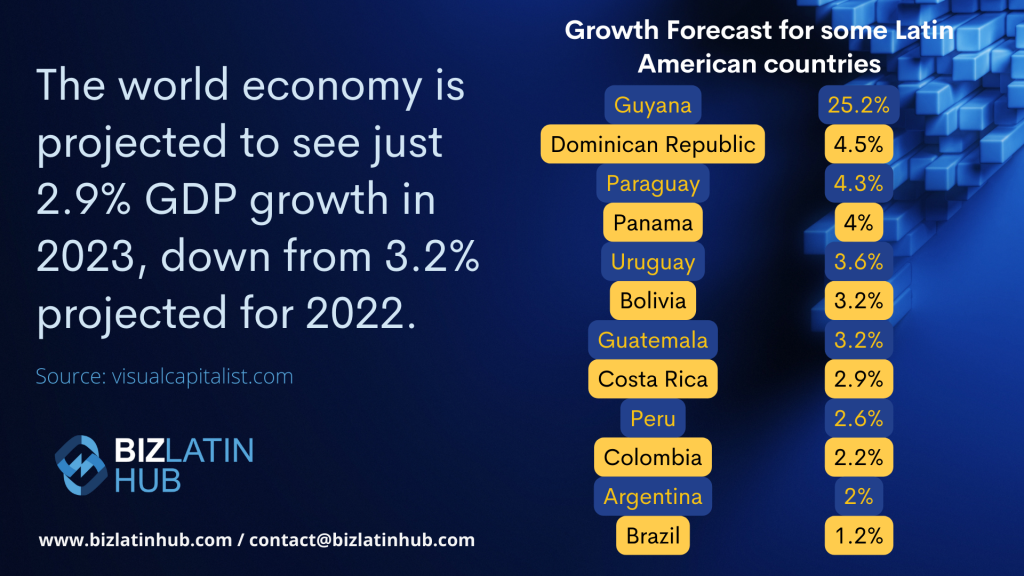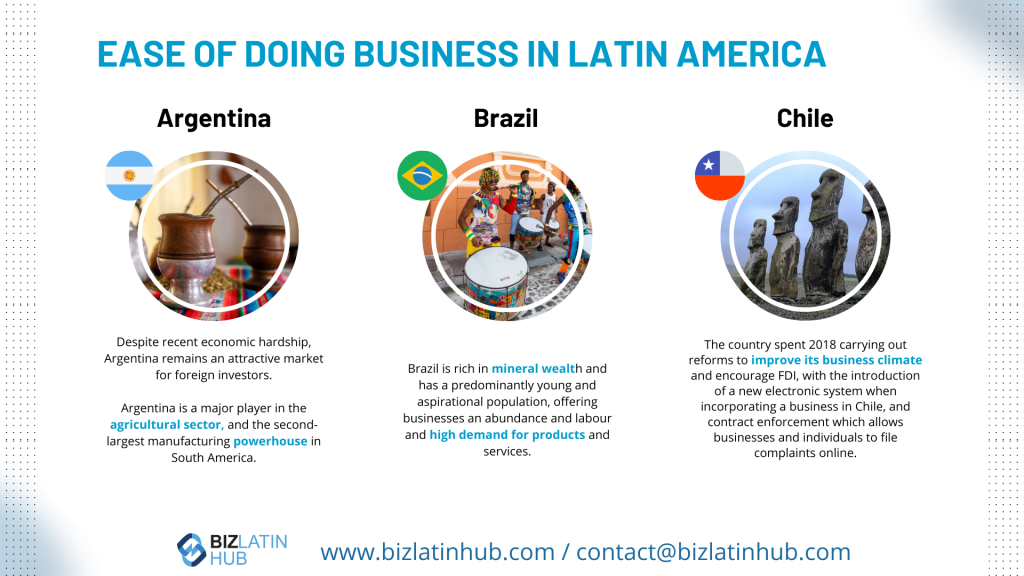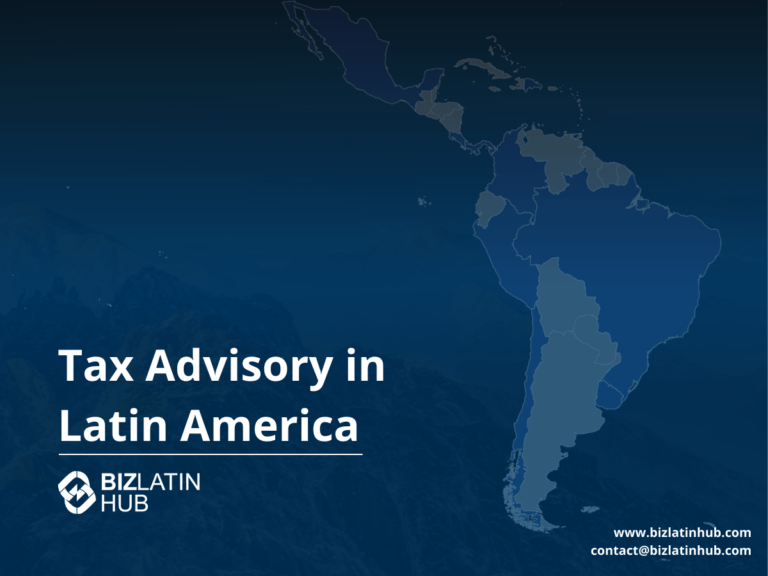Company formation, also known as company incorporation or business registration, is the process of creating a legal entity to establish a commercial presence in a new environment. This allows you to conduct business activities and experience the commercial opportunities of a particular jurisdiction. Many foreigners have found registering a business to be a great way to enter the Latin American market and begin business operations. However, it’s important to note that there are different types of legal structures in Latin America.
Key Takeaways On Legal Structures In Latin America
| What are the common legal entity types in Latin America? | A Branch Office of a Foreign Company (Sucursal de Sociedad Extranjera) A Corporation (Sociedad Anónima – ‘S.A’) A Simplified Shares Company (Sociedad por Acciones Simplificadas – ‘S.A.S’) A Limited Liability Company (Sociedad de Responsabilidad Limitada – ‘SRL’ or ‘LTDA’) |
| What is the most common Latin American business entity? | The most frequently incorporated legal entity in the region is the SRL, although in some countries the S.A.S is better. |
| What are the primary considerations when choosing a business entity in Latin America? | Ownership Structure. Tax Efficiency. Profit distribution. Transfer Pricing. Compliance. Flexibility. |
What are the main types of legal structures in Latin America?
There are four main types of legal structures in Latin America. While the requirements, characteristics, and operations may differ slightly between countries, there are some common points:
- A Branch Office of a Foreign Company (Sucursal de Sociedad Extranjera)
- A Corporation (Sociedad Anónima – ‘S.A’)
- A Simplified Shares Company (Sociedad por Acciones Simplificadas – ‘S.A.S’)
- A Limited Liability Company (Sociedad de Responsabilidad Limitada – ‘SRL’ or ‘LTDA’)
In most cases, and where permissible under local laws, a simplified shares company is the best legal structure for most business applications; but make sure to conduct research on all types of legal structures in Latin America, as they vary between territories in terms of specifics.
How can I incorporate a legal structure in Latin America?
Although costs, time periods, and levels of stress involved in setting up a company vary between the different types of legal structures in Latin America, nearly all of them share key procedural elements.
PRO TIP: It is highly recommended that you partner with local experts who can manage the incorporation process and can ensure that your company is correctly structured based on your business activities. The types of legal structures in Latin America can be hard to navigate for those who do not understand the nuances of the region.
A good service provider can support you throughout the entire company incorporation process. Some invaluable incorporation services include:
- confirm the most appropriate legal structure
- complete a company name search
- prepare the company bylaws
- obtain the official company books
- register the company with the local authorities
- obtain the company tax ID
- open a corporate bank account
From Our CEO: “During the process of securing your company Tax ID, some countries allow the company to be registered under different taxation regimes, which can lead to significant financial savings. For example, in Peru, a company can register as a ‘Small Business’, which in turn rewards the company with a number of fiscal advantages. This is why it is so important to ensure that you are working with local experts who can guide you through the process and to ensure its done right”. – Craig Dempsey

Legal compliance requirements of a company in the complex types of legal structures in Latin America
Most countries in Latin America required local companies to meet some minimum statutory requirements. While these vary from country to country, the region shares some commonalities. See below some of the basic legal compliance requirements in Latin America.
- Appointment of a company legal representation (‘local director’) – This individual serves as the company’s legal representative before governmental authorities and is responsible for maintaining the company’s good standing. They must be a citizen of the country or a foreign national with the right to reside and work in the country.
- Register a legal/fiscal address – This is the registered legal address of the company and will be used for the filing of taxes, mailing purposes and for other official communication. This must be a physical address within the country, and in most cases, it must be a registered office location.
- Tax declarations – Every legal entity within Latin America must file monthly and annual tax declarations with the national tax authority.
Note: Depending on the value of business activities and/or the type of legal structure, some countries may also require the appointment of an external and independent auditor for the company.

FAQs on types of legal structures in Latin America
Generally, yes, but it varies from place to place. There are some exceptions in certain industries and certain countries, so be sure to double check with a trusted local specialist.
We usually recommend Simplified Share Companies where they exist, but this does vary slightly depending on a variety of factors, such as the country, industry and size of company.
Although our guide above gives you the basis for understanding the region, we always recommend that you talk to one of our dedicated local specialists who can advise you on the best path forward for your situation.
This depends on where you are used to. However, there is a broadly similar business culture throughout Latin America to what you might expect in the USA, Europe or Canada. Again, do make sure to consult a local specialist for precise and tailored advice.
Generally, yes. Most legal structures in Latin America come with built in liability protection, meaning that you are generally limited to the value of your investment as long as you are compliant.
Essential guide – Why form / incorporate a company in Latin America?

Latin America is living something of a golden age. The region is experiencing a period of significant economic growth and is becoming increasingly attractive to investors. Here are a few key reasons to consider forming a company there:
Strong economic indicators: GDP continues to grow impressively. Positive, investment-friendly, legislation is being adopted by many governments which keeps forecasts looking good! The World Bank shows that the region has a strong GDP of nearly USD$6 billion, and is showing strong annual growth. Some markets, like Peru, are performing well above this average. Their economy is growing at an impressive 13% year-on-year.
Furthermore, companies are backing the region to produce some very impressive investment figures. In 2021, the region received over USD$200 billion in foreign investment, with countries like Mexico performing particularly well. The North American country received over USD$30 billion in that same year.
There are many benefits to all types of legal structures in Latin America, such as:
- A proven market that is home to diverse business opportunities
Choosing to form a branch or business in Latin America opens the door to some of the most dynamic, upcoming industries on the planet. There are over 50 unicorns in the region, and venture funding is firmly on the rise. One example is Kavak, a Mexican used-car platform valued at nearly USD$9 billion.
- Availability of talented and bilingual workforce at a lower cost compared to North America or Europe.
Another benefit to starting a business in Latin America is that you can access highly educated, well-trained professionals for a fraction of the price of hiring in Europe or North America. This is particularly useful for companies based in Canada or the USA and allows for a phenomenon called Nearshoring. Researching the types of legal structures in Latin America can help you classify your company for similar business activities.
- Opportunities to take advantage of government incentives aimed at attracting foreign investment.
Governments have recognized that bureaucracy can be a problem, and have made several steps to simplify and incentivize business in the region. A good example of simplifying legal requirements and helping those understand the types of legal structures in Latin America is the launching of the Simplified Shares Company in Ecuador and other countries.
The mission of Biz Latin Hub is simple: we strive to do everything we can to promote a healthy and fruitful relationship between investors and the remarkable, ever-evolving and emerging economies of Latin America. We have seen first-hand the growing
Biz Latin Hub can help you with types of legal structures in Latin America
To conduct business, financial and hiring activities in Latin America, it’s necessary to establish a local legal entity. It’s crucial to identify the appropriate types of legal structures in Latin America for your business and complete the incorporation process accurately. We can support you in understanding the differences between all types of legal structures in Latin America.
Biz Latin Hub can be the perfect partner to help you navigate your way through this challenge. We offer a full, multi-lingual suite of back-office services in over 11 Latin American countries, boasting local expertise in each jurisdiction. If you have any queries about the business opportunities in your country of interest, the company formation steps or anything to do with a specific Latin American industry, do not hesitate to get in touch with our team.






